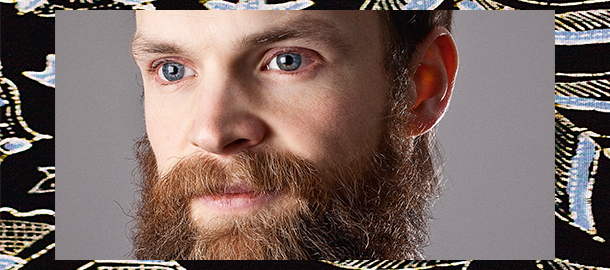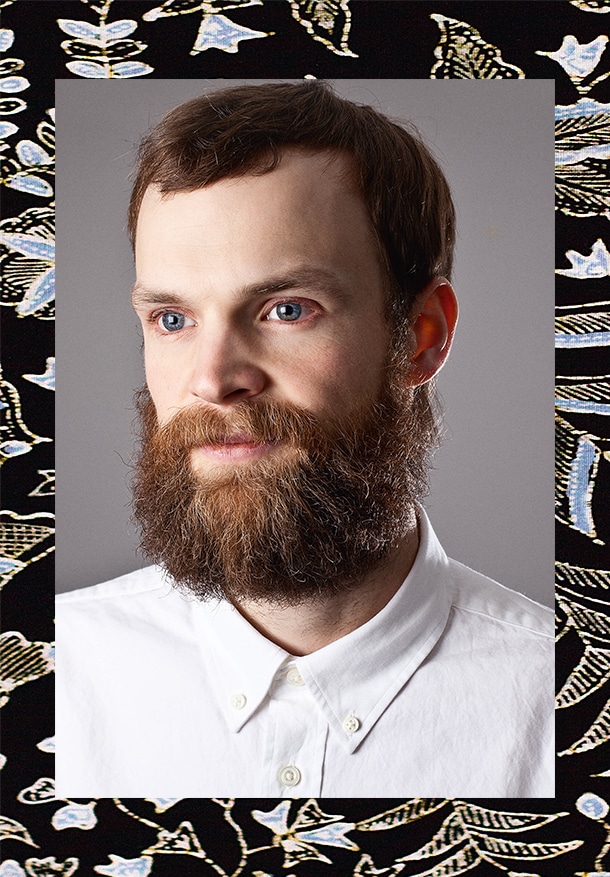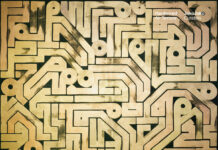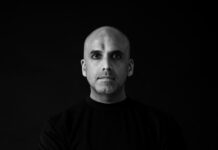
Interview: Frank Wiedemann
An abbreviated German version of this interview has been pusblished in Groove 147 (March/April 2014)
Todd Terje and Frank Wiedemann of Âme first met a few years ago when they played at the same venue. Both quickly recognized that they shared an interest in the technical aspects of music production. They have kept in touch ever since, debating the latest purchases for their studios through text messages. For this interview, Wiedemann visited Terje in his studio in the heart of the Norwegian capital Oslo. Prior to the release of Terje’s first ever LP It’s Album Time the pair talked about the Norwegian disco wizard’s beloved Arp 2600 synthesizer, his nerdy tech blog and the magic groove of the Roland TR-808.
Todd, I will try to keep it simple in the beginning. When did you actually start making music? Did you learn any instrument or are you self-taught?
I learned to play the piano at school, but actually my first instrument was the trombone. I only really started to get into music when I joined a christian gospel choir in Mjøndalen, a small town just outside of Oslo where I grew up. We just met up to practice singing and there was always a party somewhere afterwards. Obviously the church knew about that, but they didn’t really care.
I went to music school as a teenager. I studied piano there and learned to play bass as a second instrument. At university I studied music for one year – which was really horrible, because it was only about music theory! It was just a very boring year. If you learn how to play the piano first, it becomes very easy. I think, knowing the piano keys is the most logical way of visualizing notes.
Do you think it is helpful or necessary to play an instrument in order to make electronic music?
I once read this thread on [the music production message board] gearslutz.com. The topic was: How important is key in dance music?
Sometimes it feels like producers don’t know how harmonies should be structured or how a melody should fit to a harmony. They do something like ‚virgin music‘ because they don’t know how it should sound.
Yes, I agree. That’s the beauty of it. I think as a DJ or musician you also suffer from being too corrective. Certainly not always. Sometimes you hear key clashes which are so obnoxious that you can not keep on listening!
Sometimes I am asking myself if this thought is limiting me. If you need to be above the theory in order to have more freedom?
I have always said: The more you know the better. Maybe you lose some of the intuitiveness or the naive approach to songwriting. I rate knowledge much higher. It can limit you at certain times if you think too much about music theory. If you listen to the greatest music ever written like maybe the Beach Boys, you notice that it sounds incredibly easy. It is not because it is incredibly easy, but they make it sound incredibly easy. They know how to renounce the whole unimportant shit – and that’s the point! I’ve discussed this a lot with [Prins] Thomas. He does not like to learn anything of this because he thinks that his intuitiveness is priceless. But I still prefer to know as much about music as possible.
„Some of the best dance tracks are just stupid rhythms with a 909 kick, a rim shot and acid square bass!“
Is a club track more interesting if it has any song elements to it or not?
This is incredibly hard to generalize. Some of the best dance tracks are just stupid rhythms with a 909 kick, a rim shot and acid square bass!
I think for somebody who learned making music in a conventional way it could be an interesting challenge to finish a club track. Surely it is easy to follow typical club music templates like: intro, arrangement, climax, break, peak and outro. But instead of this I always prefer to build up an arrangement in a more improvisational way, for instance with the help of a MIDI-controller.
As soon as you agree that there are some arrangement presets, I think your brain stops working. Just starting with an improvisation, like you use to, is the much healthier way of making music! Then you can decide if there should be a break or not. It is like a Cobblestone Jazz track, they don’t think about breaks at all.
Let’s talk about the studio you share with Prins Thomas and Hans-Peter Lindstrøm. Do you prefer working alone or do you enjoy collaborating with them in the studio?
I like to be a part of the community but I don’t really take advantage of it. Sometimes I borrow from Hans-Peter’s studio gear. Or I steal some coffee from him! But we never really work together, unless we force ourselves to do it. We tried it with „Lanzarote“. We wanted to push our collaborative live act – that was actually the main reason why we did it. We had actually finished that song earlier, but we didn’t think about releasing it. We did a lot of sessions where we played something like Madonna’s „La Isla Bonita“ at 100 beats per minute as a an 808 track. While we jammed, I heard that was about to transpose and I tried to follow him. It was very funny and a bit like a chase. He often made great transpositions and I always tried to take some energy from him instead of doing the normal transposing.
Stream: Lindstrøm & Todd Terje – Lanzarote
So generally, it happens quite rarely that you work together in this space?
Yes, but we are planning to do it more often. Now I just became a father and Hans-Peter has two little kids too. He knows more than me that time is valuable. He has known it all along: Hans-Peter’s way of working has been very focused over the last ten years. He doesn’t really waste much time!
I can see a lot of hardware in this studio. How important is hardware for you? What does it mean to you? Do you use it because you think it sounds better or does it just inspire you?
It is definitely more a source of inspiration to me! Synthesizers play a huge part in the creative process. But I guess it is mostly not about the sound but more about the approach. For instance, the Arp 2600 sounds as good as almost any other synthesizer and the great thing about it is that you have knobs! You can just move eight faders at once with your hands and something happens. That feels much more lively, you can not do that with a mouse! You can click at exactly one place at a time and that is not always very intuitive.
Does it sometimes happen that you use a synthesizer plug-in although you actually own the real machine?
Yes. If I don’t have that much time, I will use a plug-in too.
For me it is the same thing. Some plug-ins sound really good, but the real appeal of using those old machines is their feel. You sit in front of them and by tweaking some knobs things happen instantly!
Every synthesizer has the one particular strength you wouldn’t find with any other machine. The Arp Odyssey, for instance, has this special mixer section. I used this device takes a lot for my album: Most of the really rough and edgy bass lines came from that. It sounds deep and punchy.
Do you think that modular synthesis pushes your boundaries and offers you more possibilities? Is it worth to dive into this or is it just a waste of time?
I don’t spend so much time in front of my little modular system. And if I work with it, I seem to be very focused on what I want out of it. But of course most people use it in a very intuitive way. I prefer to buy filters and other stuff of which I know what to expect, how they are going to change things. For instance bass lines, you need bass lines, but I don’t want to use the same filter for them all the time!

Which do you think is the most important thing in your studio? It doesn’t have to be an instrument!
It is obviously my brain and my ears of course. I mean it does not matter how much money you spend on sound cards, software and stuff like this. In the end it is your taste which defines what you are doing. There are always people who think you need to have the latest gear. But this is still not true! You need to have good ideas to finish a project. No gear guarantees that you can finish sooner. You can only aspire to this by yourself.
Do you think that money can buy a good sound? Does expensive hardware really sound better? Is there one special cable that improves your sound significantly?
I have always believed in knowledge and progress. Currently I spend a lot of money on things like that. But I also know that when one of my first hits, „Eurodans“, was in the mix, we ‚only‘ used a multiband compression preset in Cubase. Thus it sounded a lot more smashing and louder than anything I had produced before. A lot of people wouldn’t identify a great producer with using those cheap plug-ins – but it sounds quite smashing! I wasn’t able to reproduce that sound again unless I used that compressor. Later I have used the same plug-in for example when I worked with Franz Ferdinand. It was a really nice way to beef up the drums without losing the depth. And it wasn’t even an expensive hardware device!
Stream: Todd Terje – Eurodans
I recognized an interesting aspect: There are many producers, who finished a very early hit single with quite simple equipment. They made some money with it and bought more and more expensive studio gear. But consequently some of them lost the sound which they were famous for.
Of course! I think that I currently risk losing my edge as well if I keep upgrading, especially when I upgrade faster than I can learn how to use all the gear. Maybe that is the main problem for a lot of people. For instance they buy a super-expensive compressor without knowing what to actually use it for. They believe that this compressor will create a unique sound or that they will sound like Daft Punk when they buy the same compressor those guys use!
Which drum machine should I have to buy if I want to create the Todd Terje sound?
Well, I mostly use the sounds of a Linn Drum. It is not a very sexy drum machine! It provides EPROM-based sampling and replicates the same sound every time, which is completely opposite to what I like most about the Roland TR-808. The thought that every bass drum of a 808 is unique makes it more valuable in this way, especially when you put it in a musical context. There are no two 808 bass drums which are the same, they are all unique. Whereas a Linn Drum is exactly the same thing all the time.
On your blog letsnerd.com you started a discussion with Morgan Geist about the legendary groove of the TR-808. You tried to find out if this myth really exists, didn’t you?
Yes, I tried to record a few classic 808 tracks. Another guy on the forum said that it is not a very detailed test, because it hardly depends on the recording medium. I wanted to test how random the semiquaver of a 808 works. People said it has got a magical groove that you can’t appropriate in Cubase. What I discovered is that the hi-hats came slightly before the kick and snare, so that it seems to be a little bit „pushy“. However as long as you synchronize it to a source it will never run wild. It is always tamed by the cowboy with the lasso and as far as I noticed, there is no system in the groove of the 808. It is just random.
O.k., but a human drummer also acts randomly, right?
Yes, but not completely. A drummer would only increase the tempo if he feels it. He would play more slow if he realizes that he plays too fast. That is a feeling, but it is not random. How a drummer feels is definitely an emotion, a groove he is following. Whereas the 808 doesn’t have any feelings.
If you could jump back in time, which sort of studio or which period of time would you like to visit?
I would definitely want to check out [legendary krautrock producer] Conny Plank’s studio, obviously because of all the nerdy things he had there. I love the Roland CR-78 and he did some wonderful things with it. Conny Plank set an example of how to work with contemporary gear and make it sound completely different. He took a boring sound and just transformed it into a grandiose popular thing! How he approached sounds was just playful. He didn’t have such a massive respect towards gear like some people have. Many people think that some gear is only supposed to slow down sounds for instance. He just did opposite things to get different effects.
I would also like to visit Compass Point Studios in the Bahamas, the studio of Island Records founder Chris Blackwell. I always wanted to look up how they produced music there. Just to find out how they set up the kick drums and bass for „Nipple To The Bottle“ by Grace Jones or Bob Marley’s „Could You Be Loved“, which has one of the best beats I know. Yes, it would be great to see how they produced those magic sounds there!
How does your typical way of processing look like? Is there a special Todd Terje work flow?
Well, for me the beat and rhythm of the kick and snare drums are the most important things. It is easier to nail something down if you have a penetrating kick drum running all the time. Then you can arrange everything else around it. So, usually I start with a beat that inspires me to create hooks or chords.
Do you use loops a lot or do you prefer to record the tracks completely live?
If I work together with a band, for instance Franz Ferdinand, it would be the easiest way to do a live recording of the whole drum track. But if I want to beef up the drums, it is just easier to take a loop of the drummer. In this case I use a sub-bass to the kick additionally in order to make it sound live, dynamic and heavy.
How much time do you spend in your studio?
Nowadays I have to work more effectively. Currently, I spend about four hours a day in the studio. Earlier, before I had a girlfriend, I spent twenty hours a day in my studio. It wasn’t very effective! I often did any other things besides, like watching YouTube videos.
Is there anything or anyone, who can get you out of your studio?
Yes, my son Alf!
Do you finally have any advice for producers who are just starting to make music?
Don’t release bad music! Be patient, learn and improve your skills. Spend enough time, so that you don’t have to be ashamed of your music later. You don’t have to be famous right away. Own your musical skills. And most importantly: Grow a beard, make a baby and eat healthy!
Todd Terje’s debut album It’s Album Time is out now on Olsen Records.




